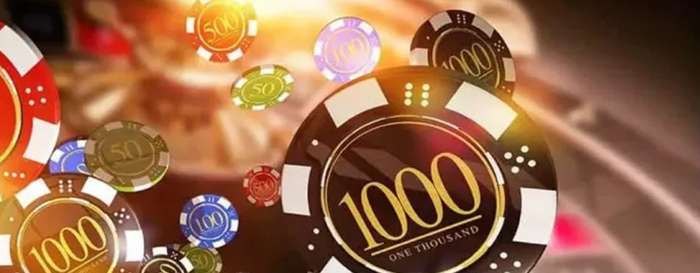Explained in simple terms, casinos make a profit by offering games of chance where the average payout is lower than the income produced from the bets. This process does involve several industry terms and some mathematical calculations to ensure the house always wins, but without disregarding keeping the player happy by allowing them to win often and big from time to time to keep them coming back and inciting others to do as well.
Learning the Math Behind How Casinos Make Money
Terms to learn include the handle, house edge, and hold percentage. A casino online blog explores each of these terms in more depth.
#1. The Handle
The handle is the most important aspect of any casino game plan model. This is the total amount of money wagered by an individual, disregarding any winnings made from that money. In a game like craps, all of the wagers made contribute to the handle regardless if they win or lose, are made with chips or cash, or end up at even money.
Sometimes people confuse the handle with the drop. In the casino world, the drop is the money or credit exchanged for casino chips. We hear the term often on blackjack tables, where the total drop is what is deposited on the metal boxes attached to the playing table.
The term handle is sometimes used to refer to the drop. The main difference is the handle is the money brought by the player to the casino that is wagered, while the drop might include casino winnings that are wagered.
#2. House Edge
The house edge is the statistical advantage the casino has for each game and bet. The outcome is always unknown and results are based on luck, but if the same amount of money were gambled over and over again, the casinos would end up winning more money over time than the player.
Either party wins at any given moment, and the only advantage the player has is to win more by gambling a larger amount on winning bets and less on losing one and walking out when in profit.
The casino revenue is the net dollar retained after all bets are paid. This amount can be negative when players win more than what the casino holds. Can happen when a lucky high-roller wins large amounts of money that overcome what smaller betting players left the casino.
The hold percentage is the relationship between the casino win Vs. to the drop. Or in other words, money that stayed from all the money brought into the casino by the players.
As an example, if a slot machine had $100 dropped in by players during a full day of wagers, and pays out $80 to players, the casino win is $20. However, the hold percentage is calculated in total wagers. So if spins are $1 the round from a total of 1000 spins, then a total of $1,000 is wagered. So to calculate the hold percentage in this case winning $20 means the hold percentage is just $20/1,000 or 2/100, which is 2%.
#3. Hold Percentage
The best way to explain the hold percentage is with a roulette table that has a zero and a double zero, or American Roulette. This game holds a house edge of 5.26%, but by the end of a full session the game can win up to 20% of the drop.
This means that for every $100 in the drop box (wagers), the house has a hold percentage of 20%. Why? Because a player will probably make many bets in the course of the time on the table, each time facing a house edge of 5.26%. Win some, lose some, and then lose it all.
What Influences Casino Handle
Time on the Device is one of the most important factors that influence the casino handle. It really doesn’t matter the size of the bet if there are no players at the table.
There is no profit. New casino ventures try hard to increase their income not so much through the house edge, but by promoting a larger bet size and a prolonged time on a gaming device, either on a table game or slot machine.
Speed is also a key factor that increases bet average and time on the device. You will see casino players tend to play really fast with the dealer, not even talking or thinking bets through, but instead making quick bets using shorthand language and splitting or doubling bets more often than not.
Experienced slot machine players play more than one at a time and even place roulette wagers while they do it. The casinos make it easy and legal to do all this as it works to make a profitable casino handle. Club comps for example are based on your average bet and hours played and not on how much you win or lose.






